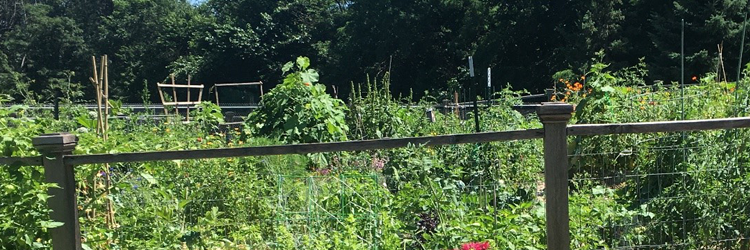Urban Agriculture & Community Gardening

Beginning of tab section with 4 tabs. Left and right arrow keys will navigate between tab navigation links.
Soil and compost
Soil
Healthy soil provides nutrients for plant growth. Sometimes soil contains harmful contaminants, especially in urban areas. Learning about your soil is an important step in starting a garden. Review the resources below to learn why and how to test soil.
- Gardening in urban soil - Minnesota Department of Health
- What's in my neighborhood? (agricultural interactive mapping) - Minnesota Department of Agriculture
- Tips for healthy soil in your garden - University of Minnesota Extension
Soil testing
- Why test soil? - University of Minnesota Extension
- How to take a soil sample - University of Minnesota Extension
- Suelo saludable para plantas saludables - University of Minnesota Extension
- Testing for lead in a garden - University of Minnesota Extension
- University of Minnesota Soil Testing Lab
Compost
Composting is the natural process of breaking down yard and food waste into organic matter. Compost can be added to soil to help plants grow. Consider the resources below for information on backyard composting, food scraps collection and where to get free compost.
- Compost bin and rain barrel fact sheet (PDF) - Recycling Association of Minnesota
- Backyard composting and discounted compost bins
- Free compost available at Ramsey County yard waste collection sites
Water access
Water access
Water access is critical for garden success. Whether for a community or home garden, there are different options to access water, such as saving rain water, getting nearby municipal water access, or creating an agreement with a nearby land owner.
Saint Paul allows community gardens to access nearby fire hydrants for water. Learn more
Rain barrels capture rainwater that can be used for watering gardens.
- Rain barrel fact sheet (PDF) - Recycling Association of Minnesota
- Rain barrel annual sale - Recycling Association of Minnesota
A nearby property owner may share water access. If an agreement is formed, installing a water meter can make it easy to share the cost.
Tools and seeds
Tools
The Minnesota Tool Library allows members to rent various tools (including gardening tools) for projects. Learn more
Seeds and plant material
- Minnesota Green Program - Minnesota State Horticultural Society
- Seed Savers Exchange
- Community Seed Network
Did you know? You can use SNAP/EBT benefits to purchase seeds and plants (for food plants.
Food use, donation and safety
Food use, donation and preservation
Learn how to donate food, reduce food waste and support community access to healthy foods.
- Donate to a food shelf near you
- Every Meal - Grow & Give produce donation program
- Guidelines for donating to a food shelf
- Community kitchen rentals in Saint Paul to process and preserve food (PDF)
- Food Keeper app - information on proper food storage
- Save the Food - learn how to reduce food waste with proper food storage, meal planning and creative recipes
Food safety
- Growing safe food - University of Minnesota Extension
- Preserving and preparing food safely - University of Minnesota Extension
- How to build a hand washing station (PDF) - University of Minnesota Extension
- Cottage foods law - rules on making cottage foods (baked foods, pickled, canned, jams, jellies) at home